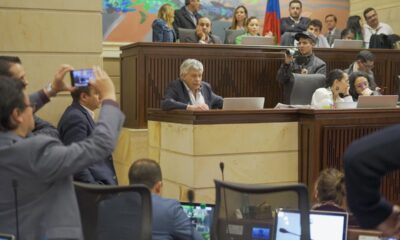International
Will Colombian Congress approve President Petro’s reforms?
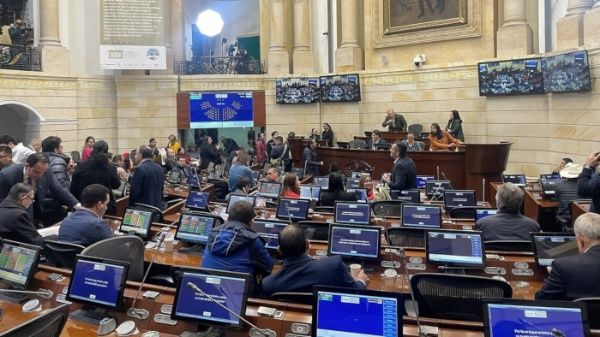
August 9|
The change of the boards of directors of Congress, in this second legislative year that has just begun in both the Senate and the House of Representatives, is not a guarantee that the Colombian government will be able to move forward with the first three social reforms promoted during the first legislative year that did not see the green light due to timing: the health, pension and labor reforms, said political scientist Guillermo Segovia.
”The three could not pass in the normal procedure in the debates because they evidenced not only that there is a big problem that in part was the justification for the election of this government, the government was elected on the basis that there was an accumulation of protests related to the health issue, with labor issues and with the pension issue,” said Segovia.
“But once the Government and the criteria of the reforms were established, the sectors that traditionally manage the sectors of economic power, that manage those sectors of social rights have opposed in a very powerful way through the media, through the unions, the associations, the parliamentarians that have been financed by those unions, to the advancement of the reform”, he added.
In this second legislative year, the outlook for the passage of these three social reforms is uncertain.
Internal problems in the Historical Pact, the rupture of the broad front of the Government due to different scandals will force the current administration to make a greater effort to achieve the necessary votes in Congress to pass them into law.
Another important point to move forward the Health, Pension and Labor reforms will be the social mobilization in the streets and the will of the majority of Colombians who elected the progressive Government of Gustavo Petro precisely to advance the great social transformations never executed.
Once again, the unions, the traditional parties, the media and the lobbyists of the private health operators such as the EPS, Health Care Providers Companies, and the Private Pension Funds managed by the owners of the banks in Colombia will be in charge of preventing the reforms from succeeding and being sanctioned by the Executive.
International
Epstein Denies Being ‘the Devil’ in Newly Released Video Interview
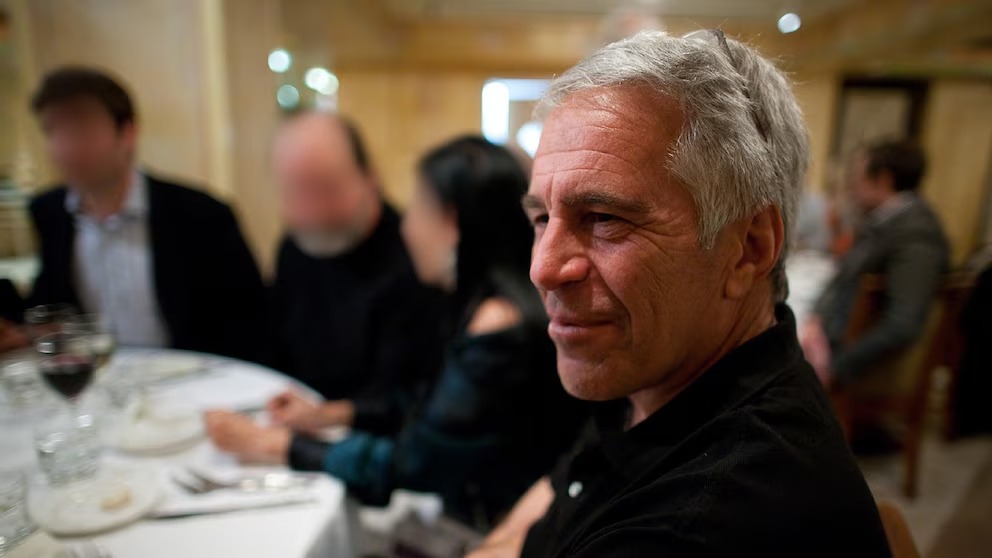
Jeffrey Epstein claims he was the least dangerous type of sex offender and denied being “the devil” in a video interview included in the latest batch of documents released over the weekend by the U.S. Department of Justice.
The roughly two-hour interview was conducted by Steve Bannon, a former adviser to U.S. President Donald Trump, and appears to have been recorded at the late financier’s New York residence on an unknown date.
Epstein died by suicide in 2019 while in jail awaiting trial on sex trafficking charges involving minors. Since December, the U.S. government has released millions of documents related to the case under transparency laws.
“Do you think you’re the devil incarnate?” Bannon asks Epstein in the video interview revealed in the latest release.
“No, but I do have a good mirror,” Epstein replies with a smile, wearing a black shirt and glasses. When pressed again, he adds, “I don’t know. Why would you say that?”
Epstein, who pleaded guilty in 2008 to soliciting a minor for prostitution, also appears to downplay the seriousness of his conviction.
He objects when Bannon refers to him as a “Level Three sexual predator,” a classification in the United States indicating a very serious threat to public safety.
“No, I’m the lowest,” Epstein says.
“But still an offender,” Bannon responds.
“Yes,” Epstein replies.
The exchange comes after Bannon asks Epstein whether he considers his wealth to be “dirty,” suggesting it was earned by advising “the worst people in the world.”
Epstein insists that he made his money legally, while acknowledging that “ethics is always a complicated issue.”
He claims he donated money to help eradicate polio in Pakistan and India, apparently in an attempt to justify the origins of his fortune.
The documents also show that Bannon maintained regular correspondence with Epstein, who offered to help the far-right political figure spread his conservative ideology in Europe.
Since Trump took office in January 2025, U.S. authorities have released millions of pages related to Epstein, along with photos and videos.
These materials have shed new light on Epstein’s ties to high-profile business executives such as Microsoft co-founder Bill Gates, celebrities including filmmaker Woody Allen, and academics and political figures, among them Trump and former President Bill Clinton.
International
Hypothermia Linked to Most Deaths During New York’s Recent Cold Spell
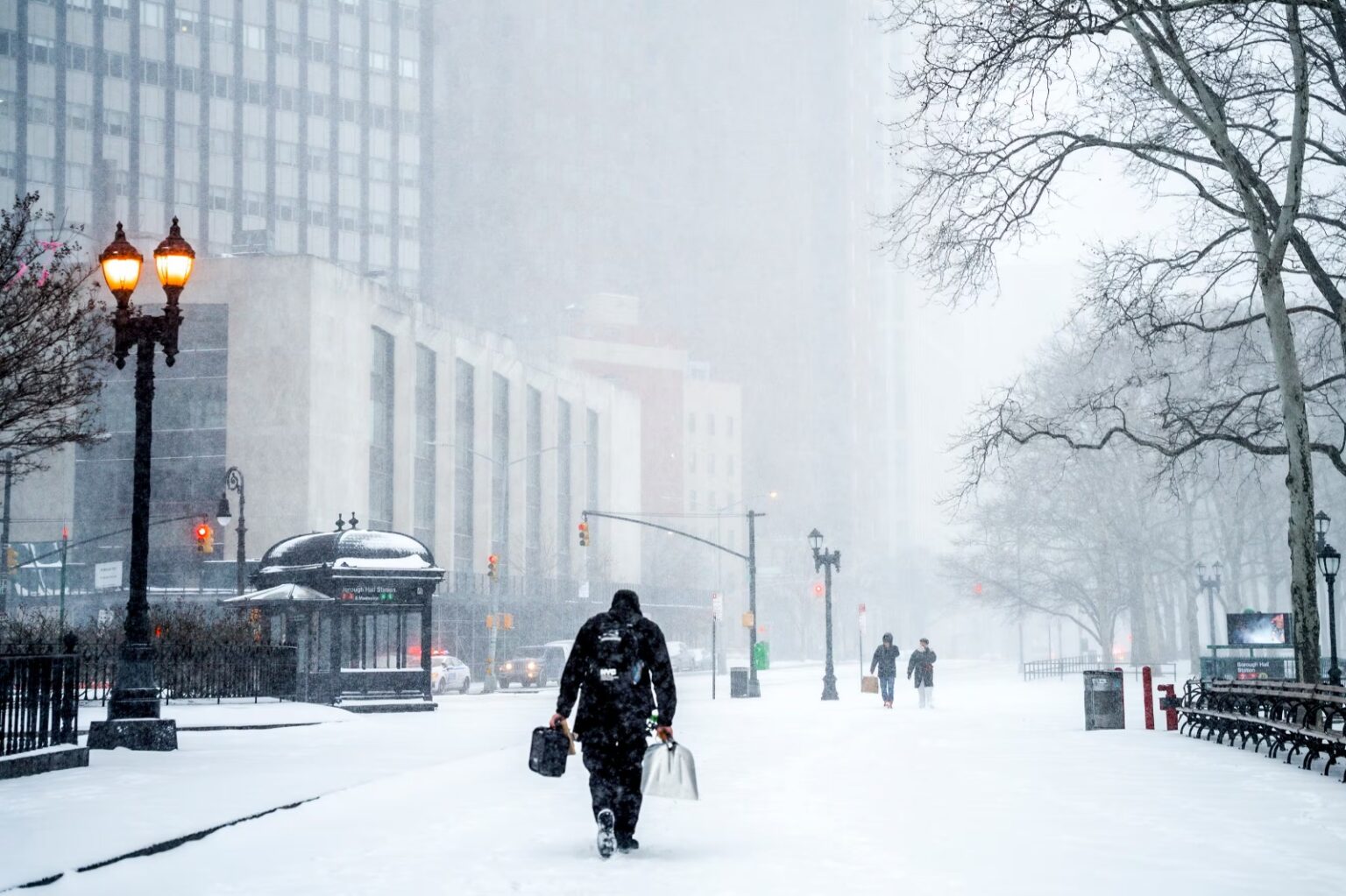
Hypothermia “played a role” in 13 of the 16 deaths recorded in New York City during the recent period of extreme cold, Mayor Mandami said at a press conference. Three of the deaths were classified as drug overdoses.
None of the individuals were sleeping on the streets at the time of their deaths, the mayor added, noting that some had previously been in contact with emergency shelter services.
Mandami said the city has activated emergency warming centers and deployed a fleet of 20 vehicles staffed with medical personnel to respond to the cold weather crisis.
“As of this morning, we have made more than 930 referrals to shelters and safe facilities. We have also involuntarily transported 18 New Yorkers who were deemed a danger to themselves or others,” he said.
According to official statistics, New York City recorded between nine and 27 cold-related deaths per year from 2005 to 2021. That number rose to 34 in 2021 and climbed further to 54 in 2022.
City Comptroller Mark Levine estimated that there are “tens of thousands” of homeless New Yorkers, “most of them families with children.”
He said that “nearly 95%” of the city’s homeless population lives in municipal shelters.
In August 2021, those shelters housed 44,586 people, the “lowest daily population in nearly a decade,” according to official data.
However, the shelter population increased from 22,955 to 62,679 people between January 2000 and January 2020, highlighting the long-term growth of homelessness in the city.
International
NFL Investigating Emails Linking Giants Executive to Jeffrey Epstein
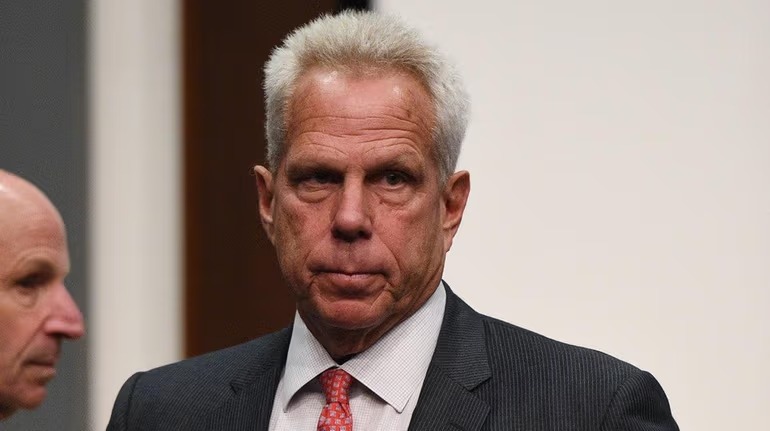
NFL Commissioner Roger Goodell said on Monday that the league will “examine all the facts” regarding contacts between New York Giants co-owner Steve Tisch and Jeffrey Epstein, revealed in documents recently released about the late convicted sex offender.
The batch of files, made public on Friday by the U.S. Department of Justice, includes emails suggesting that Epstein introduced several women to Tisch.
Tisch, a film producer who has never been charged in connection with Epstein, issued a statement last week denying any wrongdoing.
“I had a brief relationship in which we exchanged emails about adult women, and we also discussed film, philanthropy, and investments,” Tisch said of his correspondence with Epstein, which dates back to 2013.
“I did not accept any of his invitations and never went to his island. As we all now know, he was a terrible person and someone I deeply regret having associated with,” he added.
Speaking at a press conference in San Jose, California, on Monday, Goodell said the NFL would carefully review the details of the ties between Tisch and Epstein.
“We’re going to examine all the facts,” the commissioner said. “We’re going to look at the context of those exchanges, try to understand them, and see how that fits within the league’s policies.”
Tisch, 76, could face disciplinary action under the NFL’s strict personal conduct policy, even if he is not found guilty of a crime.
“We’re going to take this step by step. First, let’s gather all the facts,” Goodell said at the press conference, which was part of the events leading up to Sunday’s Super Bowl between the Seattle Seahawks and the New England Patriots.
-

 Central America4 days ago
Central America4 days agoPanama Supreme Court Strikes Down Panama Ports Concession as Unconstitutional
-

 Central America4 days ago
Central America4 days agoU.S. and Guatemala Sign Trade Deal Granting Zero Tariffs to Most Exports
-

 International14 hours ago
International14 hours agoSpain Seeks to Ban Social Media Access for Children Under 16
-

 International14 hours ago
International14 hours agoMexico to Send Humanitarian Aid to Cuba Amid U.S. Threats Over Oil Shipments
-

 International14 hours ago
International14 hours agoHypothermia Linked to Most Deaths During New York’s Recent Cold Spell
-

 International15 hours ago
International15 hours agoPetro Resumes Extraditions, Sends Top Criminal to U.S. Before White House Talks
-

 International14 hours ago
International14 hours agoEpstein Denies Being ‘the Devil’ in Newly Released Video Interview
-

 Central America2 days ago
Central America2 days agoCosta Rica Goes to the Polls as Voters Choose Continuity or Change
-

 Central America15 hours ago
Central America15 hours agoLaura Fernández Says She Will ‘Never’ Allow Authoritarianism in Costa Rica
-

 International15 hours ago
International15 hours agoMexico Arrests Suspect in Shooting of Sinaloa Lawmakers
-

 International14 hours ago
International14 hours agoNFL Investigating Emails Linking Giants Executive to Jeffrey Epstein

























